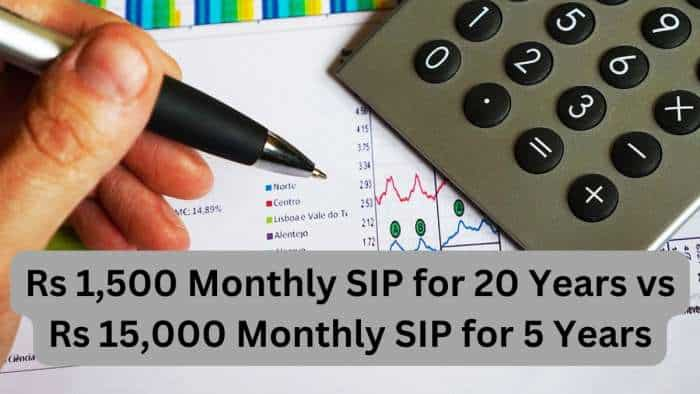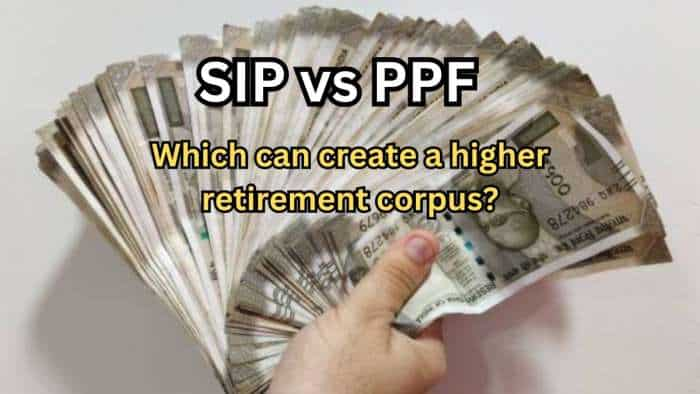EPF vs PPF vs VPF Accounts: Which one is better? Experts Jitendra Solanki, Kartik Jhaveri explains
EPF vs PPF vs VPF: Employees' Provident Fund (EPF) and Public Provident Fund (PPF) is considered one of the most favoured retirement fund oriented investment options in India. EPF is an automatic investment as it gets opened once one gets employed.

EPF vs PPF vs VPF: Employees' Provident Fund (EPF) and Public Provident Fund (PPF) is considered one of the most favoured retirement fund oriented investment options in India. EPF is an automatic investment as it gets opened once one gets employed. However, PPF is a voluntary investment option where an investor chooses to invest by opening a PPF account. Both EPF and PPF are risk-free but in EPF, the Centre announces interest rate on yearly basis. In PPF, central government announces interest rate on quarterly basis. Recently, EPF interest rate for FY 2019-20 has been announced 8.5 per cent while PPF interest rate for January to March 2021 is 7.1 per cent.
Speaking on EPF vs PPF, SEBI registered tax and investment expert Jitendra Solanki said, "EPF is opened by the recruiter and both employer and employee contributes in the EPF account every month. However, PPF is a voluntary account and it can be opened by any Indian citizen. Both provide income tax exemption under Section 80C of the Income Tax Act (ITA). Apart from this, this Rs 1.5 lakh ceiling is the total sum invested in various schemes listed in Section 80C of the ITA."
Solanki said that PPF investors are those who want to invest with zero risk and accumulate wealth for their retirement fund.
See Zee Business Live TV Streaming Below:
Speaking on PPF vs EPF; Kartik Jhaveri, Director — Wealth Management at Transcend Consultants said, "Those who are not employed, PPF is a better option for them. But, for those who are employed, they should go for the Voluntary Provident Fund (VPF) instead of PPF. In this option, one will be able to get 8.5 per cent on one's annual investment with the same benefits of EEE that a PPF account will give. However, on VPF investment, the recruiter is not bound to go for the same monthly EPF contribution that the employee has chosen. If an employee choses VPF, the recruiter need not to pay the monthly contribution like EPF, because a recruiter is not bound to contribute on EPF contribution above 12 per cent of the basic pay of an employee."
Highlighting the benefit that an employee will get on choosing VPF instead of PPF Jhaveri said, "By choosing VPF, the employee won't get matching amount from employer's monthly contribution that he or she gets in the case of EPF account, but it will help fetch annual interest of 8.5 per cent instead of 7.1 per cent PPF interest."
Apart from this, Jhaveri said that EPF gives greater return than any other risk-free government-backed small savings schemes. He said that one will have one account to avail of Section 80C benefit while Income Tax Return (ITR) filing that is also a benefit to file ITR smoothly.
On how to choose VPF, Jhaveri said, "At the beginning of the financial year i.e. in the month of March or April or at the time recruitment, one can inform the HR about wishing to opt for VPF along with EPF."
Get Latest Business News, Stock Market Updates and Videos; Check your tax outgo through Income Tax Calculator and save money through our Personal Finance coverage. Check Business Breaking News Live on Zee Business Twitter and Facebook. Subscribe on YouTube.
RECOMMENDED STORIES

Monthly Pay Calculations: Is your basic salary Rs 24,900, Rs 51,500, Rs 70,000, or Rs 1,01,400? Know what can be your total salary?

Gratuity Calculation: What will be your gratuity on Rs 45,000 last-drawn basic salary for 6 years & 9 months of service?

Rs 1,500 Monthly SIP for 20 Years vs Rs 15,000 Monthly SIP for 5 Years: Know which one can give you higher returns in long term

Income Tax Calculations: What will be your tax liability if your salary is Rs 8.25 lakh, Rs 14.50 lakh, Rs 20.75 lakh, or Rs 26.10 lakh? See calculations

8th Pay Commission Pension Calculations: Can basic pension be more than Rs 2.75 lakh in new Pay Commission? See how it may be possible

SBI Revamped Gold Deposit Scheme: Do you keep your gold in bank locker? You can also earn interest on it through this SBI scheme

SIP vs PPF: Rs 1,00,000/year investment for 35 years; which scheme can generate a higher retirement corpus
09:47 AM IST










 Retirement fund body EPFO's net new member additions up 9% at 18.5 lakh in August
Retirement fund body EPFO's net new member additions up 9% at 18.5 lakh in August  What is Employee Pension Scheme (EPS)? How much monthly pension will you get on Rs 15,000 basic salary?
What is Employee Pension Scheme (EPS)? How much monthly pension will you get on Rs 15,000 basic salary? EPF rules explained: How to make a partial withdrawal online for marriage, home renovation or medical emergency
EPF rules explained: How to make a partial withdrawal online for marriage, home renovation or medical emergency PPF vs VPF: What are the similarities between these schemes? Which can be a better investment option?
PPF vs VPF: What are the similarities between these schemes? Which can be a better investment option? Pension Payment Order: What is PPO number? How to find PPO for receiving pension in bank account
Pension Payment Order: What is PPO number? How to find PPO for receiving pension in bank account